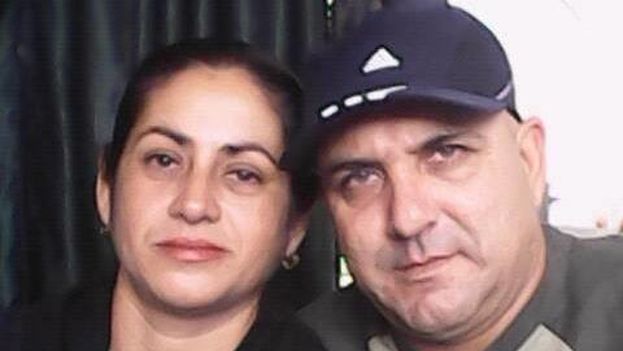
![]() 14ymedio, Reinaldo Escobar, Havana, 13 July 2016 — Before leaving Cuba, Armando Avila was an auto mechanic specializing in brake systems in Ciego de Avila. In December 2015, he took a flight to Ecuador with the intention of reaching the border between Mexico and the United States to invoke the Cuban Adjustment Act. On July 9 he was returned to Havana by force, in a group of 29 Cubans deported by Rafael Correa’s government.
14ymedio, Reinaldo Escobar, Havana, 13 July 2016 — Before leaving Cuba, Armando Avila was an auto mechanic specializing in brake systems in Ciego de Avila. In December 2015, he took a flight to Ecuador with the intention of reaching the border between Mexico and the United States to invoke the Cuban Adjustment Act. On July 9 he was returned to Havana by force, in a group of 29 Cubans deported by Rafael Correa’s government.
Avila, 45, spoke with 14ymedio by telephone on Monday and said he did not feel like a deportee or a returnee, “but someone kidnapped.” The migrant, who wanted to keep his current whereabouts unknown, recalled that “the laws of Ecuador consider that no one is illegal and they can only deport those who have committed a crime.”
One day after the deportation of Avila, a new group of 46 Cubans, also repatriated from Ecuador, arrived on the island. Island authorities claimed in a note that the deportations were carried out “in strict compliance with the provisions of the legislation of both countries and existing international standards for this type of situation.”
However, Avila maintains that he had presented his case “before a legal hearing and less than one day before learning of the outcome” he was arrested. “At 2:40 in the morning they took all our belongings, I was handcuffed and put into a military plane that took us from Quito to the province of Esmeralda and from there to Cuba,” he explains.
A few hours after arriving in Havana he learned that he was acquitted at the hearing, which means that there were no “grounds for deportation,” he insists. Thus, he considers himself to have been a victim of revenge or a “policy violation,” motivated by his having exposed, in Ecuador, “the reality we experience in Cuba.”
Avila returned to Havana, despite the official press note saying that “all” of the people were taken to their “home provinces.” However, his wife, Yurisleisy Pérez Calzada, was not deported and remains in Ecuador.
Avila says he fears for his life. “Upon arrival at Jose Marti International Airport in Havana, waiting for us was a squad of riot police, several police officers and a large number of senior officers of the Interior Ministry.”
He said that the group was treated as if its members were “terrorists.” “They divided us by provinces and we were told to wait, that later we would be contacted to determine our situation,” he says.
On Monday, the defense lawyers for the Cuban migrants in Ecuador denounced the violation of a habeas corpus petition that had been submitted to avoid repatriation. The lawyers have questioned the constitutionality of the measure, because since 2008 Ecuador’s Constitution has recognized “free human mobility.”
A complaint about possible violations of the law join the accusations against the Ecuadorian police for acting violently against Cubans being held in the Hotel Carrion detention center and the Flagrancia Unit.
Avila intends, this Monday, to begin procedures at the United States Embassy to “ask for political asylum,” feeling that he has “no other option” and fearful of reprisals. “I’m afraid, because I realize that they are afraid of us.”
